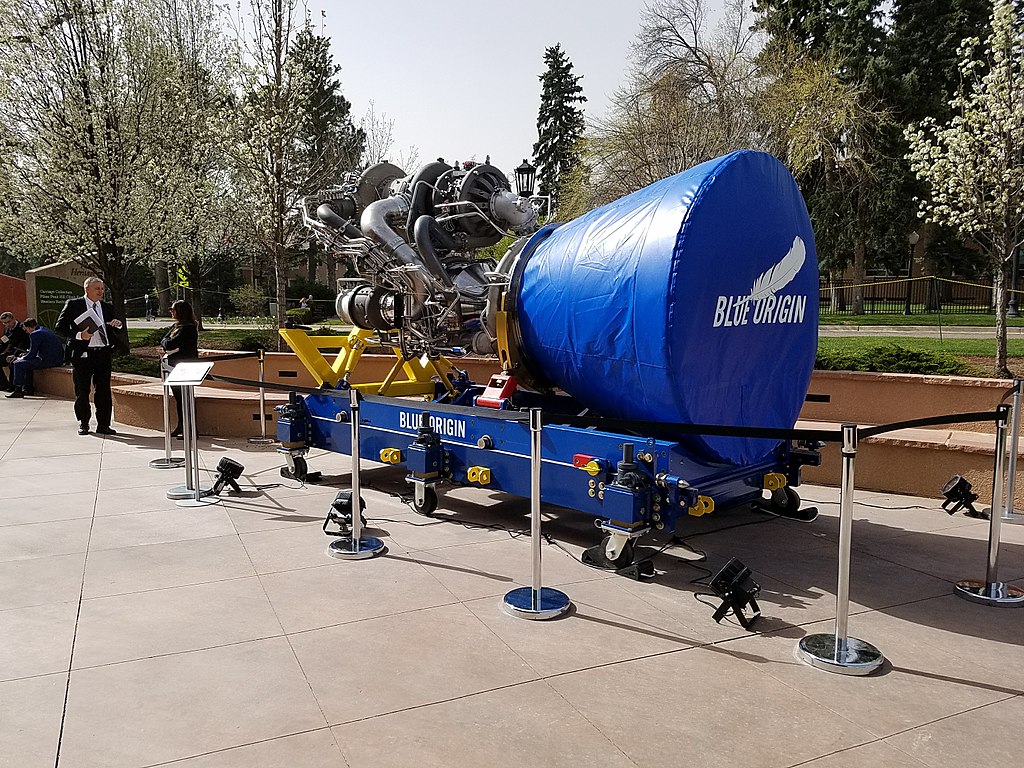Blue Origin’s New Glenn rocket successfully launched into orbit early Thursday, marking a significant milestone for Jeff Bezos’ space company. The 30-story rocket, equipped with a reusable first stage, lifted off at 2 a.m. ET from Cape Canaveral Space Force Station. This mission is a key step in Blue Origin's efforts to compete with SpaceX in the satellite launch market.
The seven-engine rocket reached orbit on its second attempt this week, with Blue Origin VP Ariane Cornell confirming the achievement. "We hit our key, critical, number-one objective: we got to orbit safely," she announced. Despite the orbital success, the reusable first stage booster failed to land on a barge in the Atlantic, losing telemetry minutes after separation.
This launch concludes a decade-long development journey for New Glenn, marking Blue Origin’s first orbital flight in its 25-year history. Bezos monitored the launch from the control room, alongside CEO Dave Limp, who has accelerated the company’s focus on New Glenn and its BE-4 engines.
The rocket carried the Blue Ring vehicle, a prototype spacecraft designed for satellite servicing and national security missions. With a backlog of missions, including 27 launches for Amazon’s Kuiper internet satellites, New Glenn is set to challenge SpaceX’s Falcon 9. Offering double the payload capacity of Falcon 9, New Glenn aims to attract government and commercial customers.
Although development faced delays, Blue Origin's achievement signals intensified competition in the growing space industry. Bezos called the orbital milestone the mission's primary goal, with booster recovery being the “icing on the cake.”
As private space exploration expands, Blue Origin aims to establish itself as a leading player, rivaling SpaceX’s dominance.



 Instagram Outage Disrupts Thousands of U.S. Users
Instagram Outage Disrupts Thousands of U.S. Users  Nvidia Confirms Major OpenAI Investment Amid AI Funding Race
Nvidia Confirms Major OpenAI Investment Amid AI Funding Race  SoftBank Shares Slide After Arm Earnings Miss Fuels Tech Stock Sell-Off
SoftBank Shares Slide After Arm Earnings Miss Fuels Tech Stock Sell-Off  Elon Musk’s SpaceX Acquires xAI in Historic Deal Uniting Space and Artificial Intelligence
Elon Musk’s SpaceX Acquires xAI in Historic Deal Uniting Space and Artificial Intelligence  Global PC Makers Eye Chinese Memory Chip Suppliers Amid Ongoing Supply Crunch
Global PC Makers Eye Chinese Memory Chip Suppliers Amid Ongoing Supply Crunch  SpaceX Prioritizes Moon Mission Before Mars as Starship Development Accelerates
SpaceX Prioritizes Moon Mission Before Mars as Starship Development Accelerates  Missouri Judge Dismisses Lawsuit Challenging Starbucks’ Diversity and Inclusion Policies
Missouri Judge Dismisses Lawsuit Challenging Starbucks’ Diversity and Inclusion Policies  Nvidia CEO Jensen Huang Says AI Investment Boom Is Just Beginning as NVDA Shares Surge
Nvidia CEO Jensen Huang Says AI Investment Boom Is Just Beginning as NVDA Shares Surge  Nvidia, ByteDance, and the U.S.-China AI Chip Standoff Over H200 Exports
Nvidia, ByteDance, and the U.S.-China AI Chip Standoff Over H200 Exports  SpaceX Updates Starlink Privacy Policy to Allow AI Training as xAI Merger Talks and IPO Loom
SpaceX Updates Starlink Privacy Policy to Allow AI Training as xAI Merger Talks and IPO Loom  TSMC Eyes 3nm Chip Production in Japan with $17 Billion Kumamoto Investment
TSMC Eyes 3nm Chip Production in Japan with $17 Billion Kumamoto Investment  CK Hutchison Launches Arbitration After Panama Court Revokes Canal Port Licences
CK Hutchison Launches Arbitration After Panama Court Revokes Canal Port Licences  Ford and Geely Explore Strategic Manufacturing Partnership in Europe
Ford and Geely Explore Strategic Manufacturing Partnership in Europe  Baidu Approves $5 Billion Share Buyback and Plans First-Ever Dividend in 2026
Baidu Approves $5 Billion Share Buyback and Plans First-Ever Dividend in 2026  Hims & Hers Halts Compounded Semaglutide Pill After FDA Warning
Hims & Hers Halts Compounded Semaglutide Pill After FDA Warning  Anthropic Eyes $350 Billion Valuation as AI Funding and Share Sale Accelerate
Anthropic Eyes $350 Billion Valuation as AI Funding and Share Sale Accelerate  OpenAI Expands Enterprise AI Strategy With Major Hiring Push Ahead of New Business Offering
OpenAI Expands Enterprise AI Strategy With Major Hiring Push Ahead of New Business Offering 































